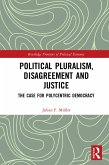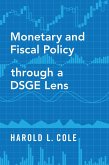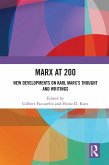This book lays out foundations for a "science of morals." Binmore uses game theory as a systematic tool for investigating ethical matters. He reinterprets classical social contract ideas within a game-theory framework and generates new insights into the fundamental questions of social philosophy. In contrast to the previous writing in moral philosophy that relied on vague notion such as " societal well-being" and "moral duty," Binmore begins with individuals; rational decision-makers with the ability to empathize with one another. Any social arrangement that prescribes them to act against their interests will become unstable and eventually will be replaced by another, until one is found that includes worthwhile actions for all individuals involved.
Dieser Download kann aus rechtlichen Gründen nur mit Rechnungsadresse in A, B, BG, CY, CZ, D, DK, EW, E, FIN, F, GR, HR, H, IRL, I, LT, L, LR, M, NL, PL, P, R, S, SLO, SK ausgeliefert werden.









